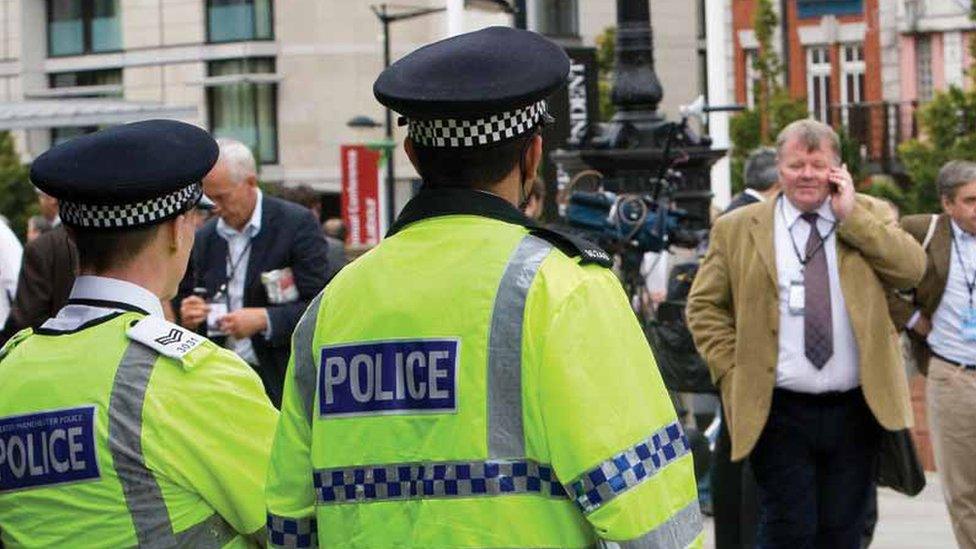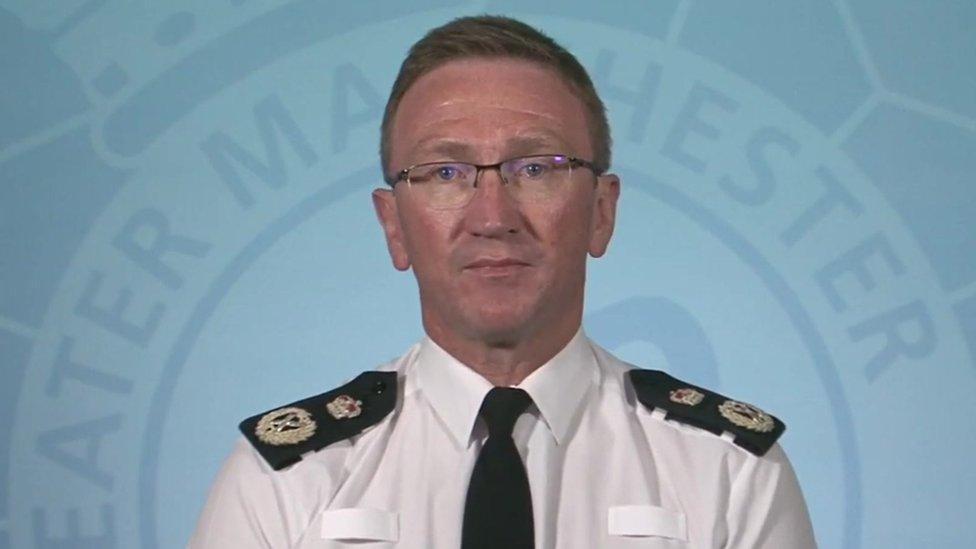Coronavirus: Greater Manchester police chief calls for public consent
- Published

More than 1,000 Greater Manchester police officers and staff are self-isolating or have the virus
The chief constable of Greater Manchester Police said "policing by consent" is the only way of enforcing the coronavirus lockdown.
Ian Hopkins said he was stepping up patrols at shops and pharmacies after new strict measures were announced by the Prime Minister.
But 1,066 police officers and staff - about 10% of the workforce - were self-isolating or had the virus, he added.
Mr Hopkins said he could only police the restrictions with public support.
“Most people are abiding by the rules but we will deal with selfish minority who don’t," he added.
His comments follow concerns raised by his predecessor Sir Peter Fahy that the tough measures restricting the movement of people would be difficult to enforce.
“The only way this is going to work is if the public understand if they don't comply we will see more and more people die,” said Sir Peter.
“The police have never had to deal with a situation like this we have half the number of police to people compared to Italy."

EASY STEPS: How to keep safe
A SIMPLE GUIDE: What are the symptoms?
CONTAINMENT: What it means to self-isolate
HEALTH MYTHS: The fake advice you should ignore
MAPS AND CHARTS: Visual guide to the outbreak
VIDEO: The 20-second hand wash

Concerns have been raised that too many people were failing to observe strict guidelines on social distancing despite pleas from public health experts.
Mr Hopkins said he was also aware that a small number of pubs flouted government instructions to close their doors over the weekend.
“The science behind this is quite stark - one person can infect 400 within 30 days."

Mr Hopkins says enforcing the lockdown will need public consent
In Greater Manchester, 1,066 police officers and staff are self-isolating or ill with coronavirus with 300 others off work for different reasons.
Mr Hopkins also revealed he had contacted Home Secretary Priti Patel with a request for more personal protection equipment for officers.
“We have the equipment for officers who will have to deal with dead bodies but we don’t have enough fluid resistant masks for frontline officers,” he added.